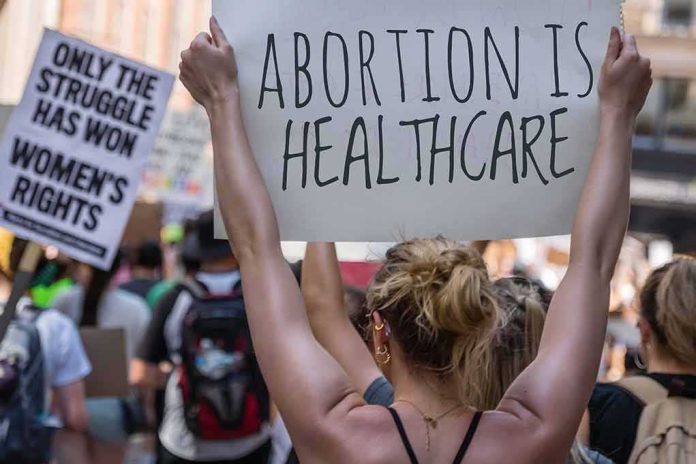
In a crushing blow to abortion providers, the Supreme Court ruled 6-3 that South Carolina can block Medicaid funding from Planned Parenthood, opening the door for other states to follow suit and potentially threatening healthcare access for millions of low-income Americans.
Key Takeaways
- The Supreme Court’s 6-3 decision allows South Carolina to exclude Planned Parenthood from its Medicaid program, reversing lower court rulings.
- Justice Gorsuch’s majority opinion states that federal law does not permit Medicaid enrollees to sue states for provider choice violations.
- The ruling prevents Medicaid patients from enforcing their right to choose medical providers through lawsuits.
- Planned Parenthood warns this decision could lead to the closure of nearly 200 health centers across 24 states.
- Nearly half of Planned Parenthood’s patients nationwide receive care through Medicaid, with one-third of its revenue coming from government funding.
Supreme Court Sides with South Carolina Against Planned Parenthood
The Supreme Court delivered a significant victory for state rights and pro-life advocates, ruling that South Carolina can exclude Planned Parenthood from its Medicaid program. The 6-3 decision, split along ideological lines, overturns lower court rulings that had previously prevented South Carolina Governor Henry McMaster’s 2018 executive order from taking effect. Justice Neil Gorsuch, writing for the conservative majority, emphasized that Congress did not explicitly authorize private lawsuits to enforce provider choice under Medicaid, stating that while provisions exist to benefit providers and patients, the law does not create enforceable individual rights.
“Congress knows how to give a grantee clear and unambiguous notice that, if it accepts federal funds, it may face private suits asserting an individual right to choose a medical provider,” Gorsuch wrote, adding “that is not the law we have,” said Justice Neil Gorsuch, Supreme Court Justice.
Victory for State Rights, Setback for Healthcare Access
Governor Henry McMaster celebrated the ruling as a long-awaited victory for South Carolina’s values and authority. The case began in 2018 when McMaster issued an executive order blocking Medicaid reimbursements to clinics providing abortion services, arguing that taxpayer funds should not indirectly support abortion providers. While federal law already prohibits Medicaid funding for most abortions, this decision allows states to deny funding for other health services provided by organizations associated with abortion, potentially affecting cancer screenings, STI testing, and other essential care for low-income patients.
“Seven years ago, we took a stand to protect the sanctity of life and defend South Carolina’s authority and values – and today, we are finally victorious,” said Henry McMaster, Governor of South Carolina.
This ruling represents a significant shift in Medicaid policy that could have far-reaching consequences. With approximately 80 million Americans relying on Medicaid for health insurance, the impact could extend well beyond reproductive health services. Planned Parenthood warns that the decision could lead to the closure of nearly 200 health centers across 24 states, as one-third of their revenue comes from state and federal funding, including Medicaid. Critics fear this could exacerbate healthcare shortages, particularly in states like South Carolina that already face a deficiency of primary care providers.
The US Supreme Court has already started issuing decisions.
Wondering what's at stake for our rights and values this term? Scroll through our explainer to see how #SCOTUS cases will impact our fundamental freedoms. And learn even more at https://t.co/7udR0nPLOV #CourtsMatter pic.twitter.com/rqfQzdx65Q
— National Council of Jewish Women (@NCJW) June 11, 2025
Liberal Justices Voice Strong Dissent
Justice Ketanji Brown Jackson, joined by fellow liberal Justices Elena Kagan and Sonia Sotomayor, issued a forceful dissent, arguing that the Court’s decision undermines civil rights protections and could harm vulnerable Medicaid recipients. Jackson accused South Carolina of attempting to “hollow out” provisions that protect patients’ rights to choose their providers and warned of tangible harm to real people. The dissenting justices emphasized that lower courts had consistently interpreted the Medicaid Act to allow individuals to sue states for violations of the free-choice-of-provider provision.
“Today’s decision is likely to result in tangible harm to real people,” stated Justice Ketanji Brown Jackson, Supreme Court Justice.
Planned Parenthood representatives expressed dismay at the ruling, with Paige Johnson, Vice President of Planned Parenthood South Atlantic, describing it as “a grave injustice that strikes at the very bedrock of American freedom.” The organization argues that the decision will disproportionately impact low-income women who rely on Medicaid for healthcare, particularly in underserved areas. The ruling arrives amid a broader landscape of reproductive rights restrictions following the Court’s 2022 decision to overturn Roe v. Wade, including South Carolina’s six-week abortion ban enacted in 2023.
Broader Implications for Healthcare Policy
This decision could set a precedent allowing states to exclude providers from Medicaid for reasons beyond abortion. Some analysts suggest the ruling might embolden states to target other healthcare providers based on political considerations. Meanwhile, Republican lawmakers in Congress have proposed legislation to bar Medicaid from funding Planned Parenthood nationwide, though such efforts face uncertain prospects in the Senate. The ruling reflects President Trump’s commitment to protecting states’ rights and limiting federal control over healthcare policy decisions.
“Taxpayers should not be forced to subsidize abortion providers who are in direct opposition to their beliefs,” stated Gov. Henry McMaster, Governor of South Carolina.
The Supreme Court’s decision marks a significant shift in the relationship between states and the federal Medicaid program, potentially allowing greater state discretion in determining qualified providers. While supporters celebrate this as a victory for federalism and pro-life values, critics warn of a fragmentation of healthcare standards that could leave vulnerable populations with fewer options for essential care. As states consider their responses to this ruling, the ultimate impact on healthcare access for low-income Americans remains to be seen.




